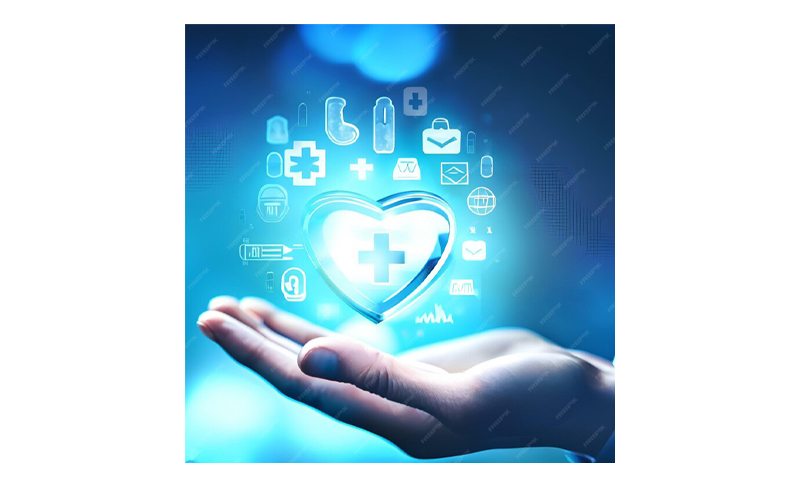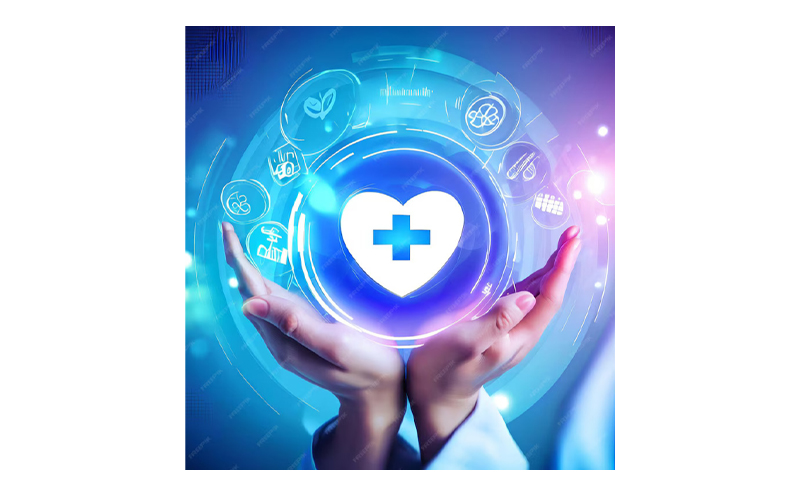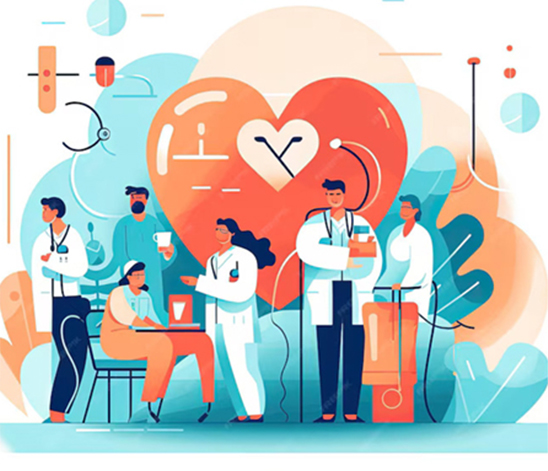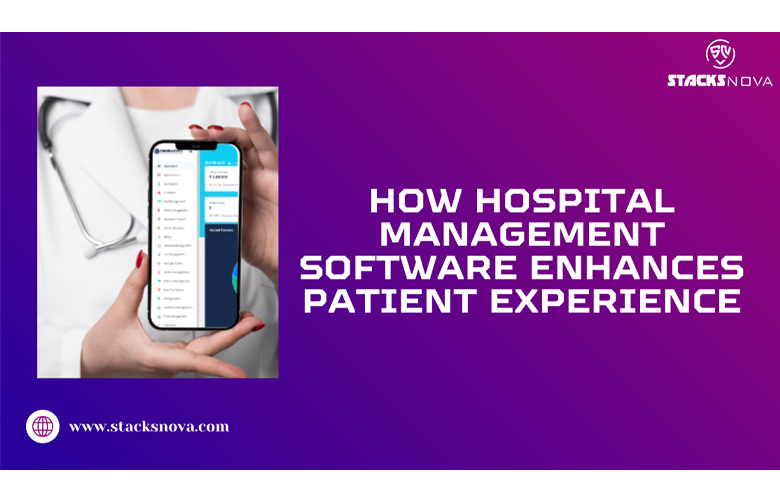1)Streamlined Appointment Scheduling
Benefits:
Online Booking: Patients can book, reschedule, or cancel appointments online, reducing wait times and enhancing convenience.
Automated Reminders: SMS and email reminders help patients remember their appointments, reducing no-shows.
Impact:
Provides a seamless scheduling experience, ensuring patients spend less time waiting and more time receiving care.

2)Efficient Patient Registration
Benefits:
Paperless Registration: Patients can complete registration forms online, minimizing paperwork and administrative hassles.
Quick Check-In: Automated check-in kiosks expedite the process, allowing patients to quickly start their appointments.Impact:
Simplifies the registration process, making it faster and more convenient for patients.

3)Comprehensive Patient Records
Benefits:
Electronic Health Records (EHR): Centralized and easily accessible patient records ensure that healthcare providers have up-to-date information.
Data Accuracy: Reduces errors associated with manual record-keeping, enhancing the accuracy of patient information.Impact:
Ensures continuity of care and improves treatment outcomes by providing accurate and comprehensive patient data.

4)Improved Communication
Benefits:
Patient Portals: Patients can access their medical records, test results, and treatment plans online.
Secure Messaging: Enables secure communication between patients and healthcare providers, facilitating better coordination and support.Impact:
Enhances patient engagement and satisfaction by providing easy access to health information and communication channels.

5)Personalized Patient Care
Benefits:
Tailored Treatment Plans: Analyzing patient data allows for personalized treatment plans that cater to individual needs.
Follow-Up Management: Automated follow-up reminders ensure patients adhere to their treatment plans and attend necessary check-ups.Impact:
Improves patient outcomes by offering personalized and proactive care.

6)Efficient Billing and Insurance Processing
Benefits:
Transparent Billing: Detailed billing information is readily available to patients, reducing confusion and disputes.
Insurance Integration: Seamless processing of insurance claims ensures quicker reimbursements and fewer delays.Impact:
Enhances the financial aspect of patient experience, making billing and insurance processes smoother and more transparent.

7)Enhanced Patient Safety
Benefits:
Medication Management: Automated systems track patient medications, reducing the risk of errors.
Alerts and Reminders: Provides timely alerts for vaccinations, medication refills, and follow-up visits.Impact:
Increases patient safety by minimizing errors and ensuring timely care interventions.

8)Real-Time Access to Test Results
Benefits:
Quick Turnaround: Patients receive test results promptly, often via the patient portal.
Lab Integration: Direct integration with laboratory systems ensures accurate and timely reporting.Impact:
Reduces anxiety and waiting times for patients, providing faster access to critical health information.

9)Telemedicine Capabilities
Benefits:
Virtual Consultations: Patients can consult with their healthcare providers from the comfort of their homes.
Remote Monitoring:Integration with wearable devices allows continuous monitoring of patients’ health.Impact:
Expands access to care and offers convenience, particularly for patients in remote areas or with mobility issues.


What Role Does Hospital Management Software Play In The Healthcare Sector?





How Do You Choose The Best Hospital Management Software To Meet Your Needs?
Check Your Requirements
The first step in choosing the best clinic administration software is assessing the intriguing requirements of your company. Make a list of the essential requirements first, which should include billing, understanding administration, and EHR integration. Assess the software's adaptability to ensure that it can handle any future extensions without a doubt.Consider staff appropriation requirements for preparedness and user-friendliness.
Scalability And Customizability
Flexibility is a crucial feature to take into account when selecting software for your sanitarium's operations. Customization and rigidity should be considered while naming the perfect clinic association program. Thus, make sure the program can expand to meet the needs of your group, taking on new cases and encouraging other associations without any issues. The capacity of a program to adapt enables it to comply with specific workflows and ensure smooth integration with ongoing operations.
User-Friendliness And Training
Beyond any doubt, the hospital management systems in healthcare that you choose have an unpredictable user interface and are simple to use. By offering a straight path of movement that can be successfully organized into workflows, reduced orchestration delays and increased productivity may be achieved. Look for stages that give pliable middleware that is specially tailored to the odd requirements of your installation to ensure gloomy staffing.
Compatibility And Integration
Verifying beyond any doubt that the framework you choose is able to perform well and efficiently with different frameworks is a figure that needs to be considered. Different frameworks can provide you an advantage over a rival show, even though they are open in the small,ible show. Assure that the application functions flawlessly with the current frameworks, pricing, and electronic health records (EHR). Check for compatibility with the operating systems and equipment that are used in your facility.
Data Security And Privacy
Data is one of the most sensitive products in the healthcare sector. When handling patient data, privacy concerns need to be taken into consideration. Any tampering with the hospital's patient data might put the authorities in serious trouble. Therefore, it is always recommended to have a hospital management system with the newest security features. Prioritizing data security and privacy is crucial while choosing the finest hospital management software. Examine the software's access controls, encryption methods, and compliance with HIPAA and other legal requirements.
Reporting And Analytics
Choosing fashionable hospital management software requires careful consideration of numerous factors, the most crucial of which are analytics and detail. Begin by evaluating your company's needs, which should include force control, billing, and patient operation.ystems with strong detailed qualities should be given priority since they facilitate in-depth information analysis and well-informed decision-making. Check to see if the software can provide reports that meet your unique needs, and confirm that the criteria are accurate.
Summary
Hospital Management Software significantly enhances the patient experience by streamlining administrative processes, improving communication, ensuring accurate and comprehensive patient records, and providing personalized care. By integrating these advanced features, healthcare facilities can offer a higher quality of care and ensure a more satisfying and efficient experience for their patients.
For more insights on how HMS can transform healthcare delivery, explore our other blog posts and resources.
